Steve Earle's 8 tips for guitarists
Essential lessons from the country rock rebel
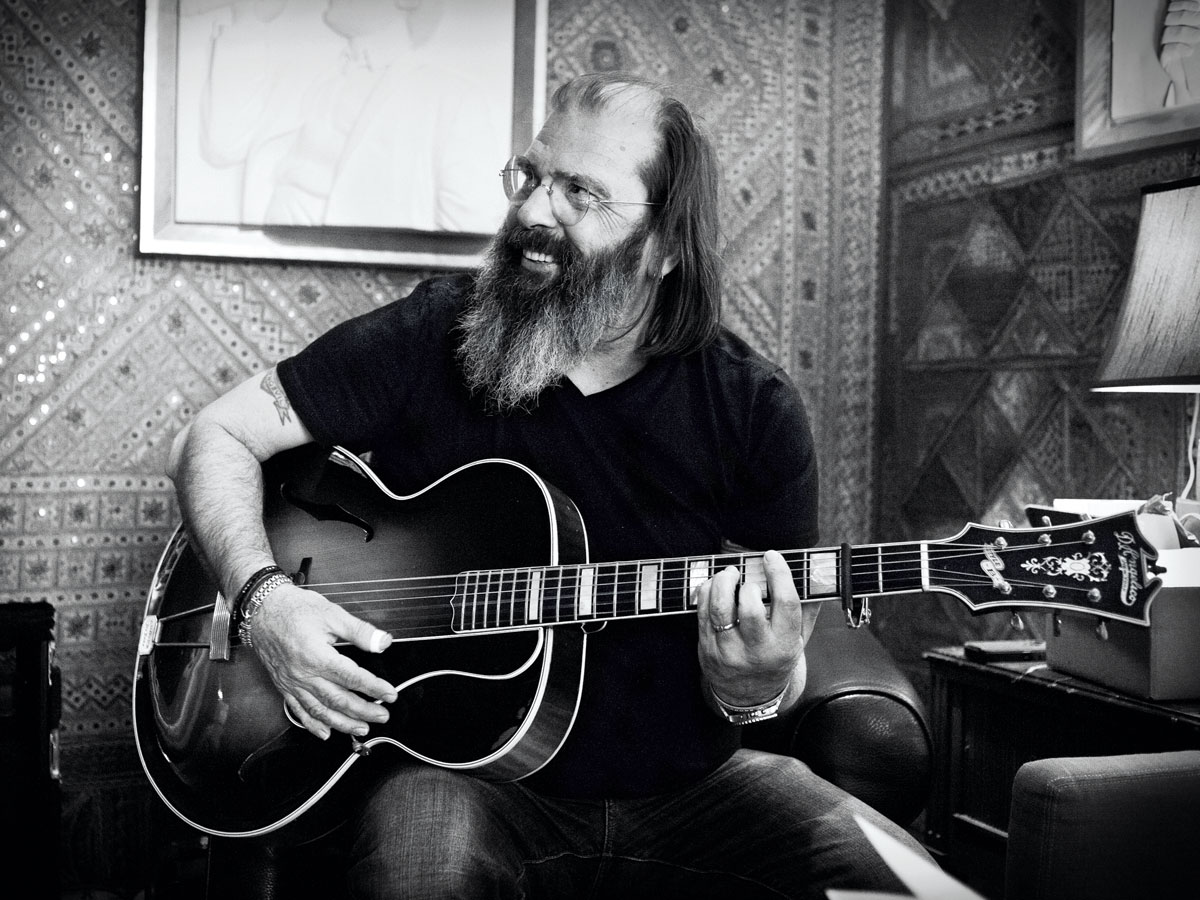
Introduction
Steve Earle has consistently served up Southern music as real as grits and greasy greens. Now, 15 albums down the line, new LP Terraplane finds him stalking his own dusty blues backroads.
Steve Earle's breakthrough 1986 album, Guitar Town, was a Nashville epic reeking of rhinestone suits and cowboy boots, with more than a hint of Born In The USA.
"Earle's career has seen him explore everything from bluegrass and honky tonk country rock"
Marked down as some kind of revved up ‘country Springsteen', two years later Copperhead Road appeared. Loud and edgy, with The Pogues onboard and a song about a dope growing Vietnam Vet, it conclusively ended any suggestion that he was just another product from the Nashville assembly line.
Earle's career has seen him explore everything from bluegrass and honky tonk country rock, to an album of material by his mentor Townes Van Zandt, with a chameleon-like ability to change direction. And along the way he's found time to act in the acclaimed HBO series Treme, written books and plays, battled alcoholism, and been married seven times.
His latest album, Terraplane, was written over five weeks spent backpacking around Europe, and finds him rediscovering his Texas blues roots, with a little Chicago thrown in for good measure.
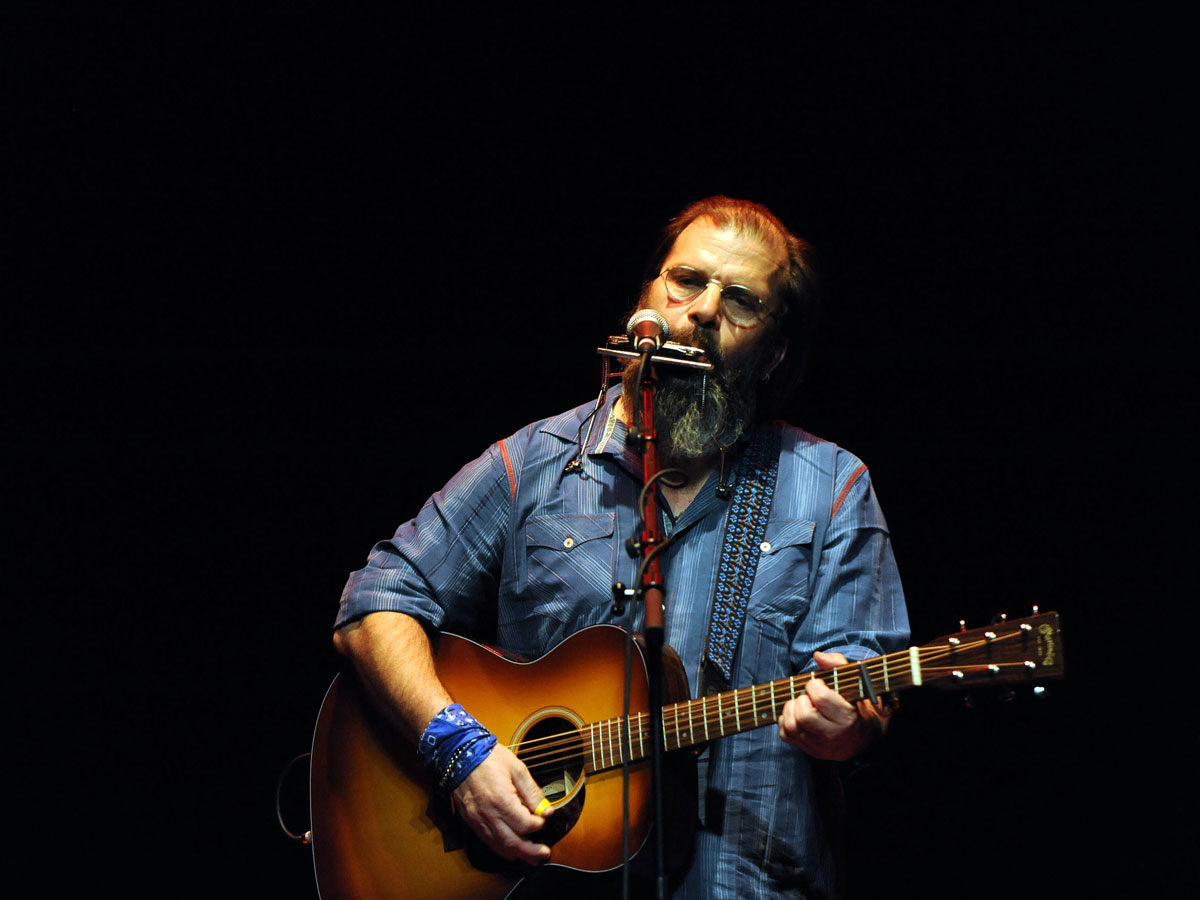
The blues is nothing new
"I grew up in Houston and used to hear acoustic guys like Mance Lipscomb and Lightnin' Hopkins playing in clubs around town, so although the electric side is more intimidating, I've played fingerstyle blues for years.
"Cross pollination made this golden era of rock that I come from and I'm not sure that it's over"
"But they were both very different - Mance played solo and what he came up with was really dance music, even though he never used a band, but Lightnin' was the kind of guy happy to play with whoever came along. So I've tried to incorporate a little bit of each of them in the acoustic songs. Then I also heard Johnny Winter, Freddie King and ZZ Top, and the British bands, so the blues has always been part of my DNA.
"People don't always recognise it as such, but the British take on blues is a huge part of rock 'n' roll history; those bands thought they were playing the stuff just like the records, but of course they weren't. What they did was to come up with blues rock.
"I remember seeing a band in Austin during the early 70s called Krackerjack, with Uncle John Turner on drums and Tommy Shannon playing bass. They were both in Johnny Winter's original band, but back then they sounded like Free. Cross pollination made this golden era of rock that I come from and I'm not sure that it's over."
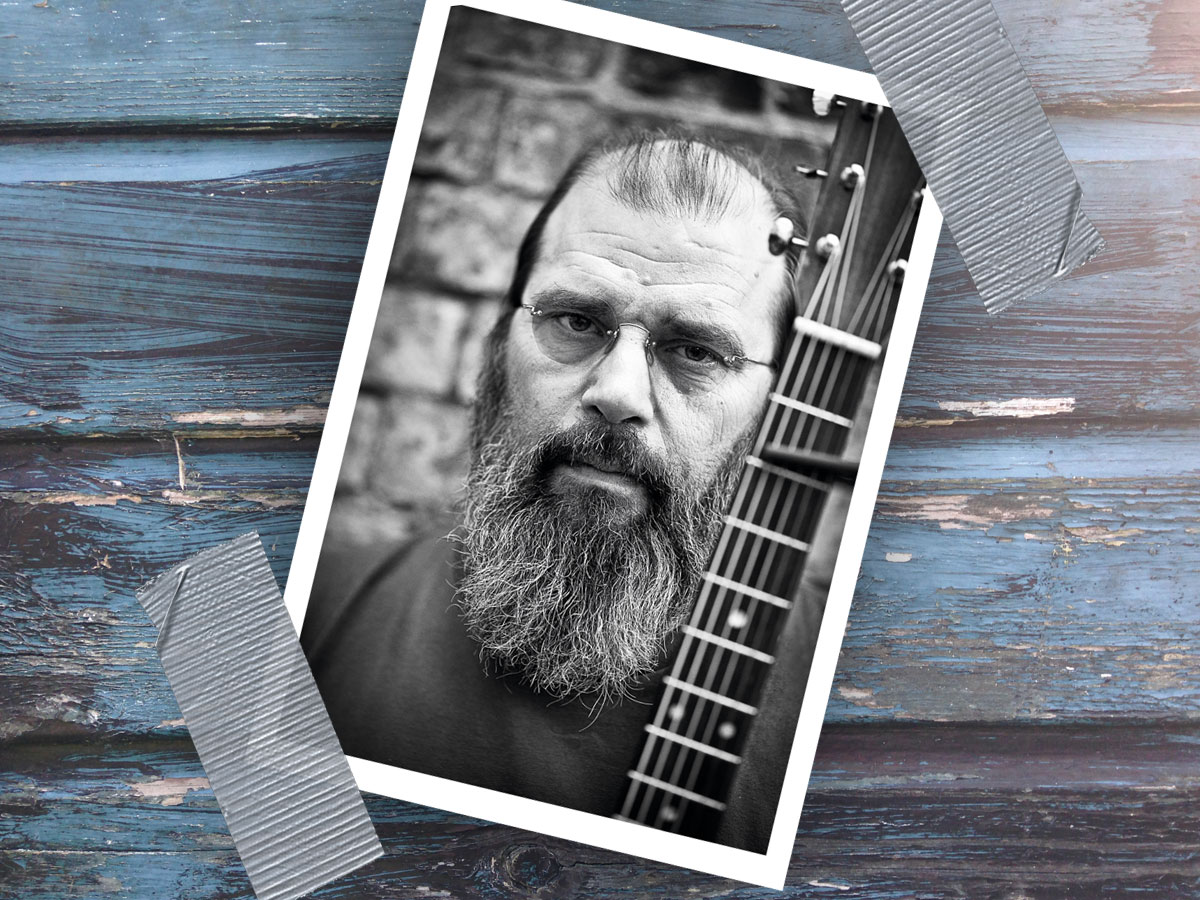
Go where the action is
"I've been really lucky to have good teachers and get to hang out with some of my heroes. I arrived in Nashville in 1974, when it was still wide open.
"I was sitting around in the same hotel room, playing music with Neil Young"
"I went because I knew that was where all the songwriters were, and you'd find singers like me and David Olney, guys who were at street level, but sitting around in the same hotel room, playing music with Neil Young.
"I was 31 when Guitar Town came out, and there were a lot of misconceptions about me that came about around that time, not that it was anyone else's fault."
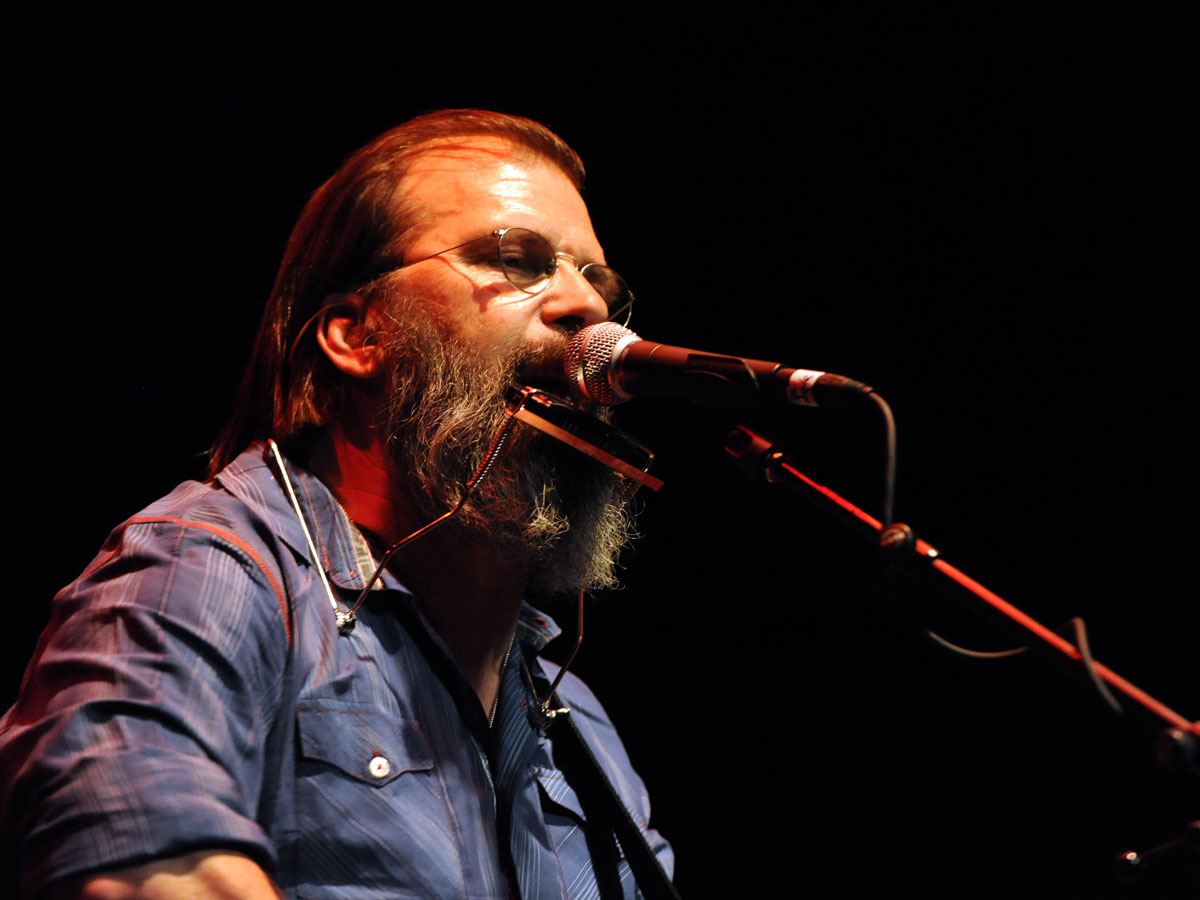
Time is not on your side
"I always knew that one day I would come up with a blues album; the emotions are about human experience, democratic, and something we all share.
"I feel I should produce anything I want to see while I still have the energy!"
"I'm beginning to feel pressed for time and that I should produce anything I want to see out there - like my book and this album - while I still have the energy!”
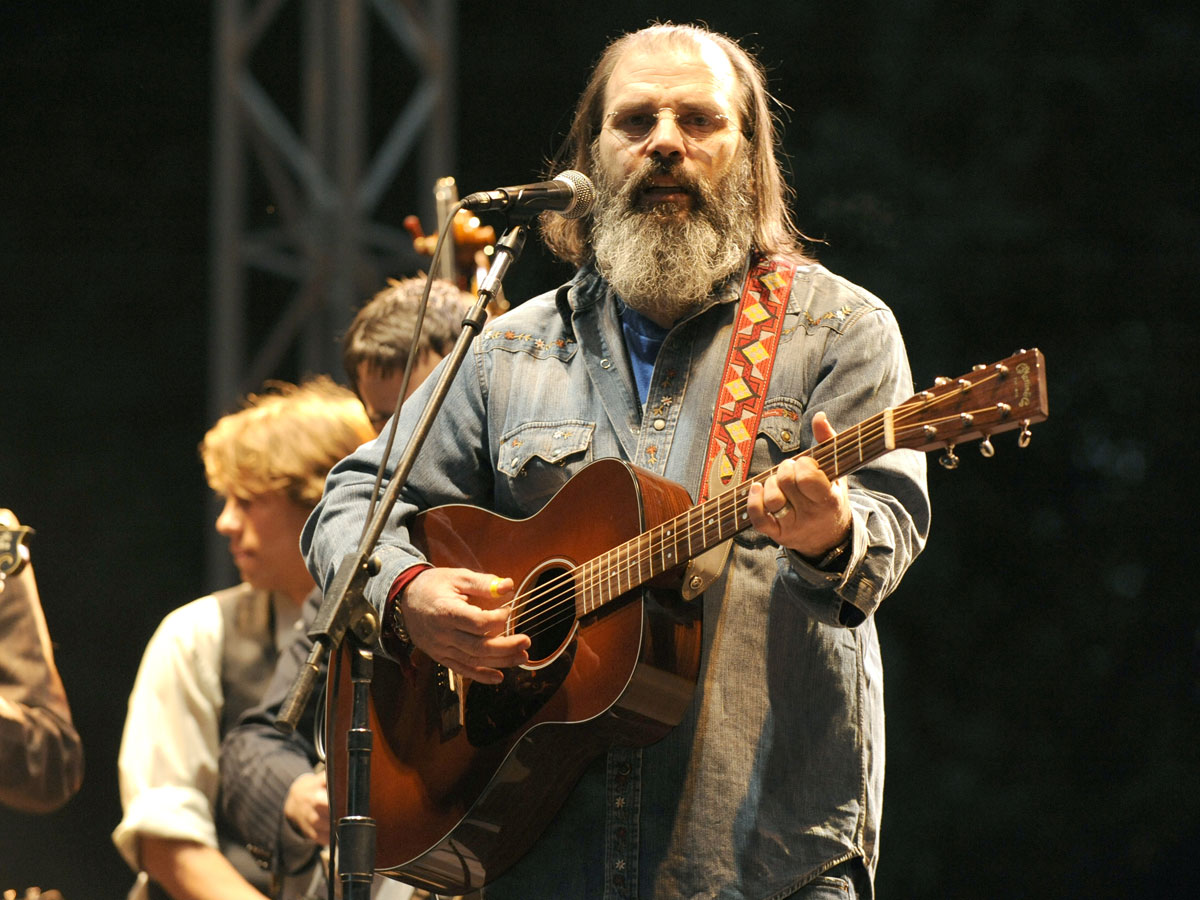
The bar is really high
"I named the album after the Robert Johnson song, but what I was trying to do was to write new blues songs based on records I grew up listening to - Howlin' Wolf, the first ZZ Top records and Canned Heat.
"I heard them all at the same time in 1968, but was immediately drawn to the Chess Records cut in Chicago. They were great songs, and the Chess brothers' way of recording made them the only records being cut in the States that were sonically close to British records. They sounded as good as Beatles records: everything is in place and they had a very special vibe.
"You hear blues guitar players playing long extended solos, but that never came from recording... The original records were pop records"
"Nowadays, you hear blues guitar players and harmonica players playing long extended solos, but that never came from recording, it came from live performance, and the whole 60s mentality of bands jamming.
"The original records were pop records, two minutes and 30 seconds long, designed to be played on jukeboxes. Those records were recorded short on purpose so people had to keep putting money in the f **king machine! But when blues bands played live it was the opposite, extending the songs so people stayed on the dancefloor. A different deal.
"It was a whole art form and I naturally returned to that idea when I wrote songs like You're The Best Lover [That I Ever Had]. I'm trying to recreate that feel but I know the bar is really high.
"And I've got Chris Masterson playing guitar in my band, who's from Texas and cut his teeth playing electric blues. I'm pretty comfortable on acoustic guitar, but it was good having his encouragement when it came to playing the electric numbers.”
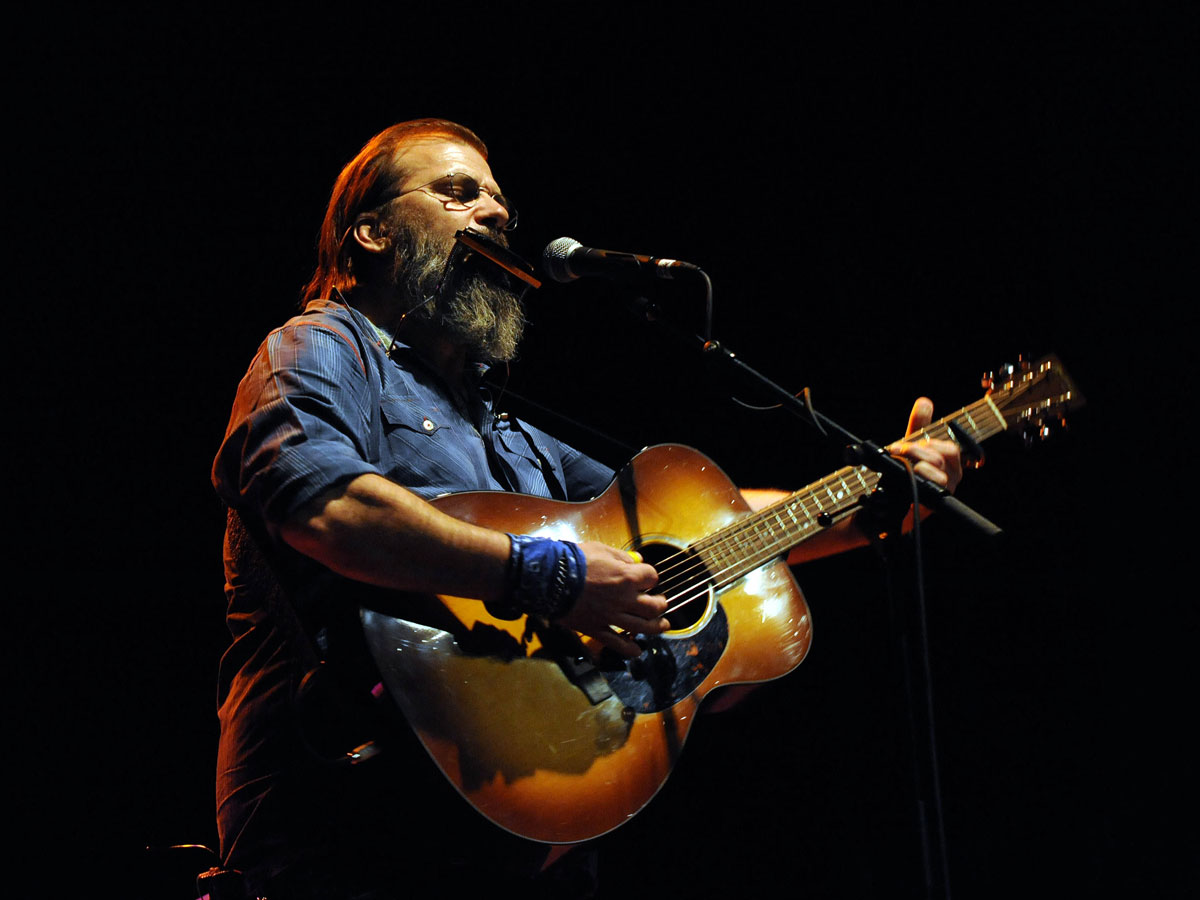
Roots are the core
"Tradition has always been very important to me, and I made the bluegrass record [The Mountain, 1999] with the Del McCoury band as a kind of experiment in musicology.
"I still get called the Bluegrass Antichrist by people out there!""
"I was trying to write songs that bluegrass bands might play at festivals after I was dead, and I think that came through because several of those songs have been covered by some great bluegrass bands since. But I still get called the Bluegrass Antichrist by people out there!"
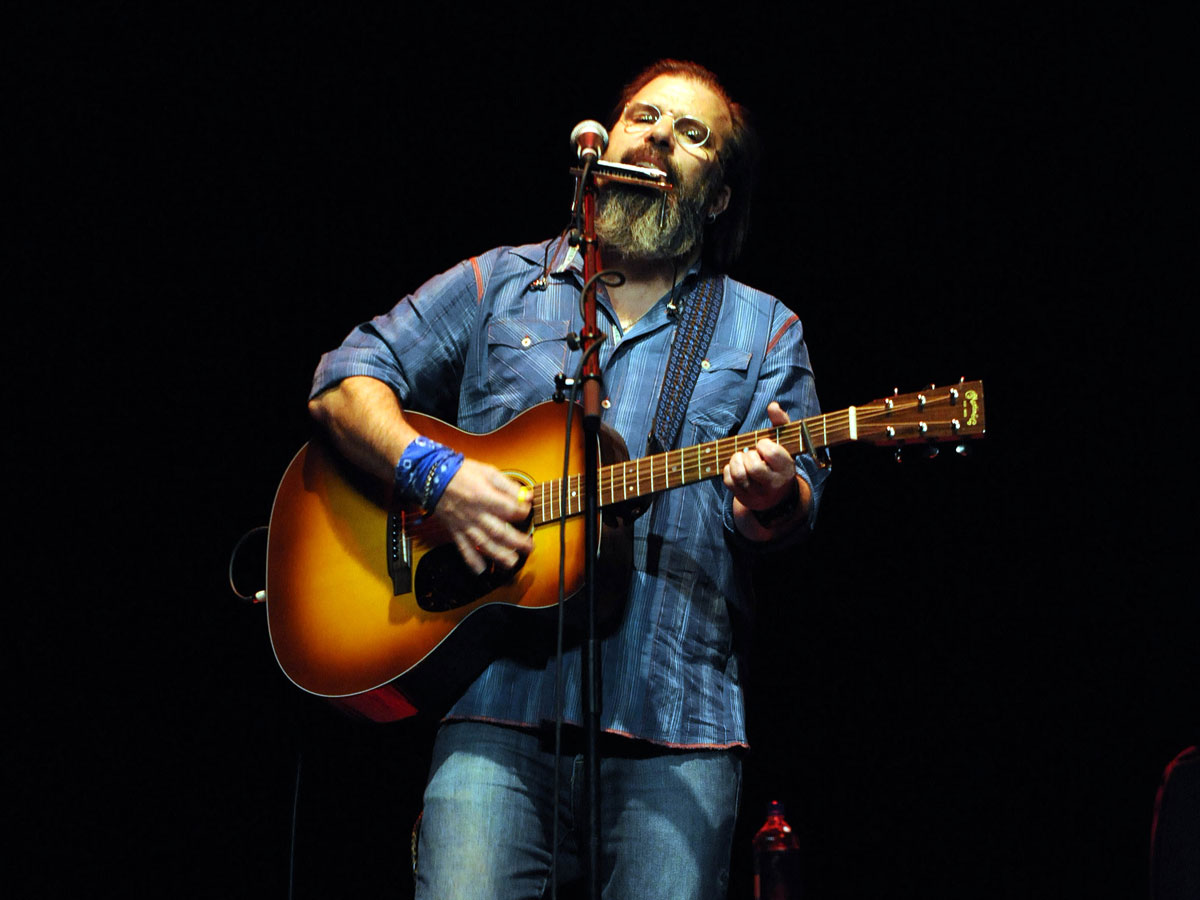
It's all in the meter
"I take a songwriting camp each summer, I call it Camp Copperhead, and I get my students to write in haiku, giving them a specific form to adhere to.
"Having to make second verses as good as the first verses is the challenge in great songwriting"
"You might write a great verse and chorus, but that's when the work really starts: once you've established a meter and a rhyme scheme, you have to adhere to that in the verses that follow.
"And having to make second verses as good as the first verses is the challenge in great songwriting, the hardest part of the job. Allen Ginsberg said, ‘Meter's not important until you learn to write meter in the first place.'"
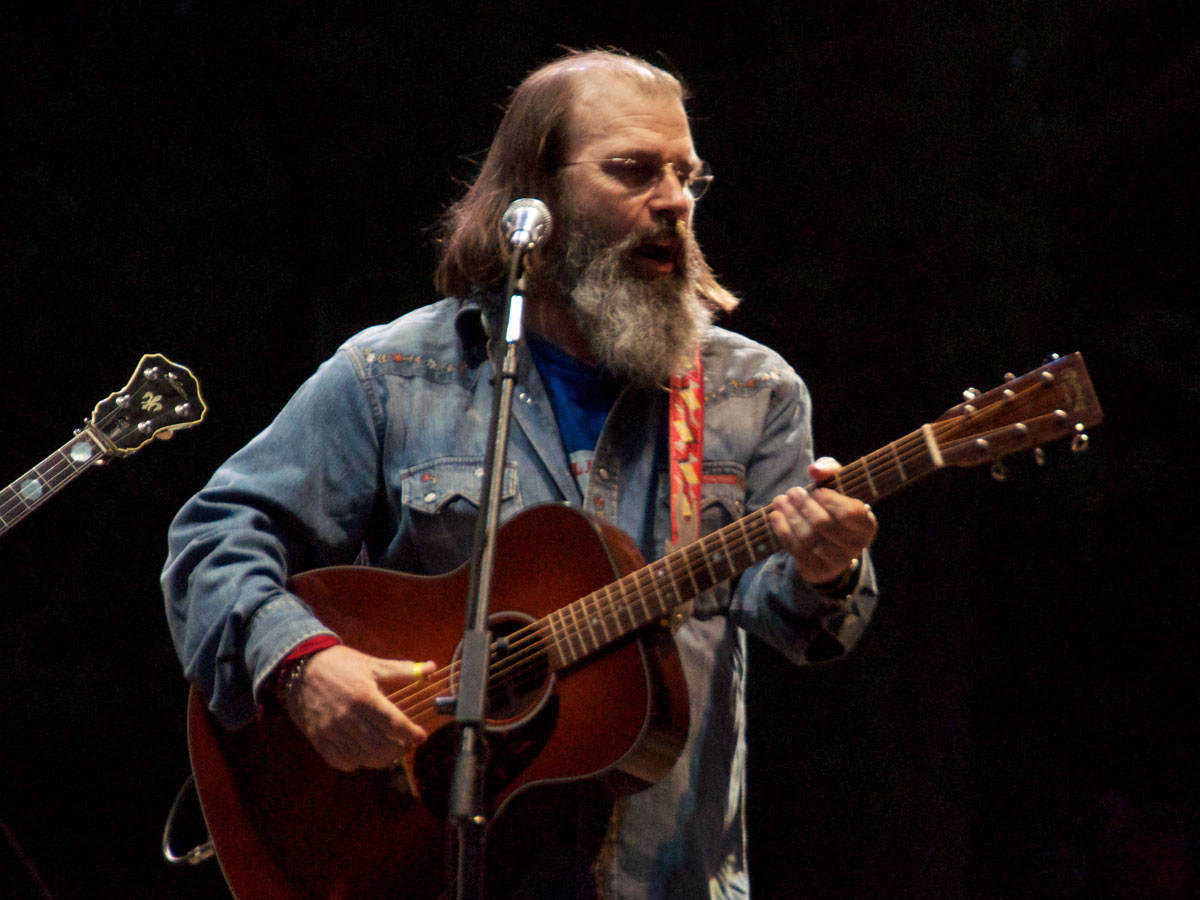
Embrace your limitations
"I started off wanting to play like Hendrix but ended up being a folkie because my dad wouldn't buy me an electric guitar.
"I know my limitations as a guitar player... I've had to work around it"
"I didn't start playing electric until I was in my 20s and heard people like Elvis Costello and Bruce Springsteen who were using the electric guitar in a whole new way with their songwriting.
"I know my limitations as a guitar player, and from the beginning I've had to work around it to the point where it's been a very natural thing in my music. I write most of my songs in G or Ab and just move the capo to where they sound good."
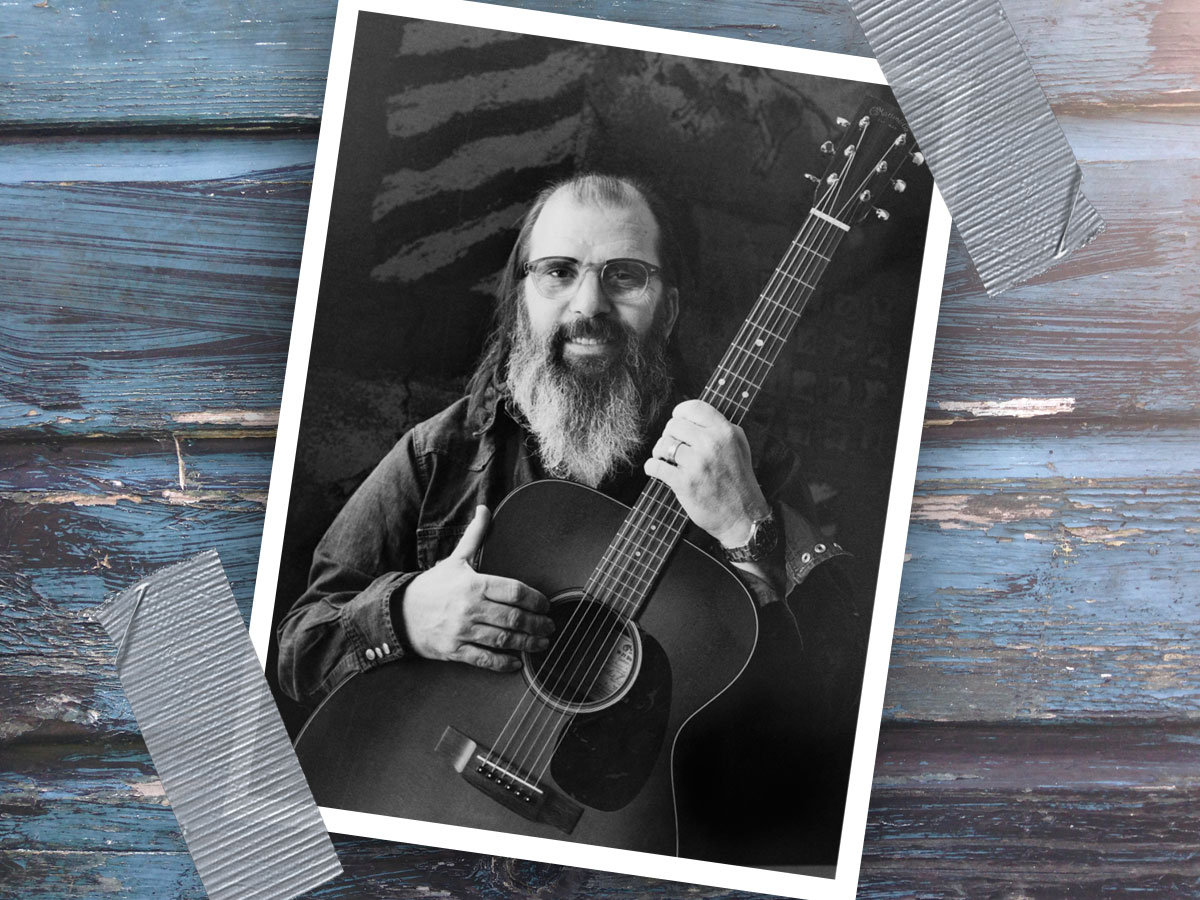
Admit that you're a guitar addict
"I've got a bunch of instruments and I'm addicted to buying them! I bought my first Martin in 1969 for $150, a pre-war D-18 that somebody had been keeping under a bed. But I moved on to playing Gibsons because I was hitchhiking around a lot, and someone pointed out that they had an adjustable truss rod.
"I collect guitars made in 1955 because it was the year I was born, and also 21-style Martins"
"That gave me a little confidence because I felt it was something I could attend to myself. Now, I collect guitars made in 1955 because it was the year I was born, and also 21-style Martins; I like the rosewood and the fact that they're really quite plain, no frills. When I'm touring and playing every night, I use new guitars rather than taking any old instruments out on the road.
"I use a lot of vintage amps in the studio and on Terraplane I used a 1959 Fender Bassman, but on the road I use a Peavey Classic 50 with four 10s. They're really reliable and I've never blown one up except one I pushed over at the end of a show!
"I collect a lot of different things, Gibson flat-tops with a pickup in them like a J-160E, and variations made by people like Harmony and National. They're not great acoustic guitars but electrically they're great.
"I'm using a Gibson J-160 Eon King Of The Blues on this album, because when I used to see Lightnin' Hopkins play in the early 70s, it was the kind of guitar he was using, a Gibson J-50 with a DeArmond pickup.
"Then there's also a 1955 Tele, 1955 Les Paul Custom, and a lot of old Martin and Gibson acoustics in the mix. There's no real logic to why collectors collect what they collect - it's a disease and I sometimes feel guilty about owning as many instruments as I do!"

